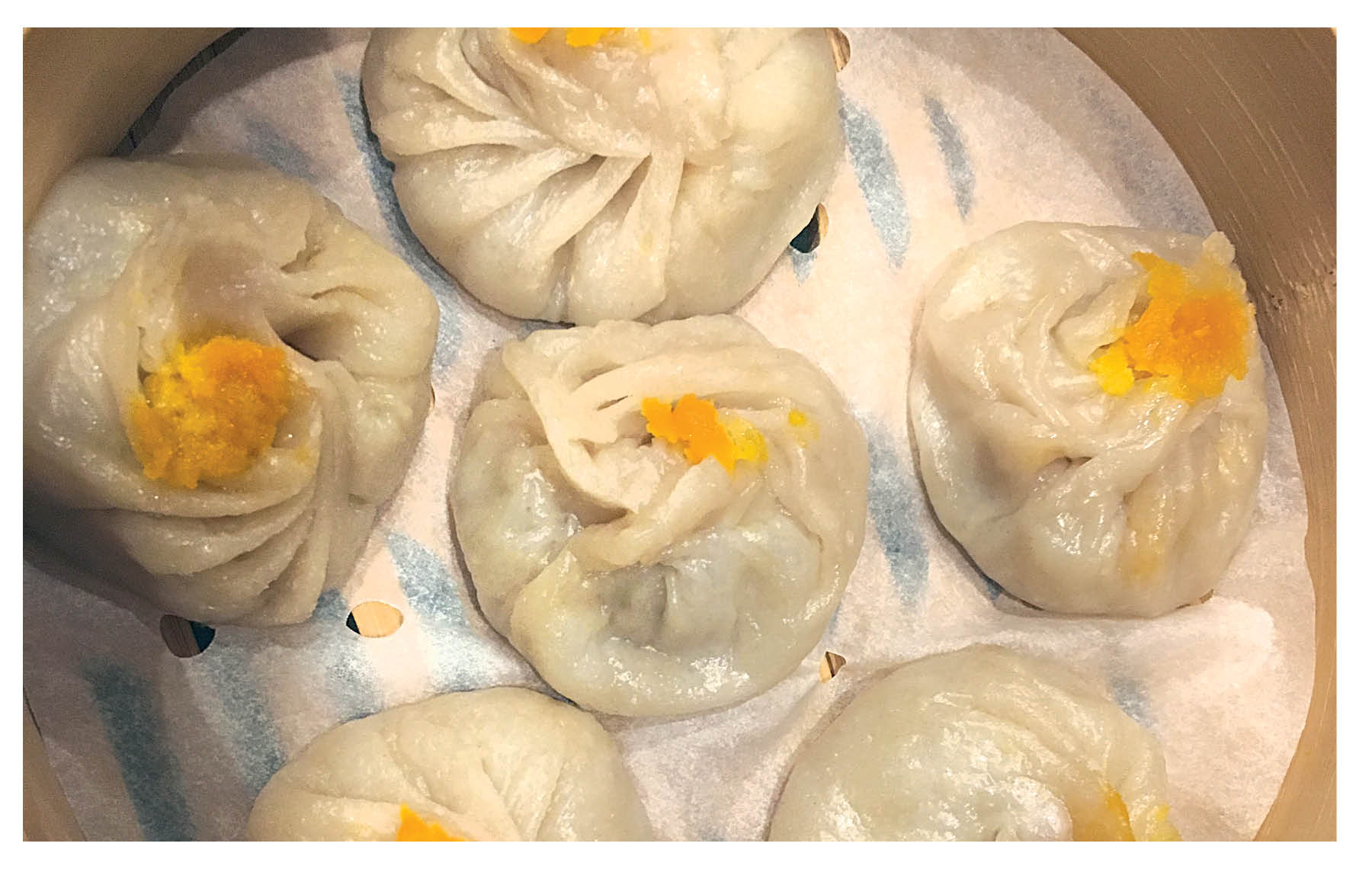
As I bit into the soup dumpling, warm stock shot out of it and onto the face of the stern-looking older woman across from me. The liquid dribbled a tear down her cheek, leaving a trail across her makeup.
Oops!
I quickly grabbed a tissue and dabbed her face, as if I were her mother, which prompted us both to burst out laughing.
This funny, life-affirming moment occurred in a midtown Manhattan restaurant where I was taking a soup-dumpling workshop with other devotees of the famous Shanghai Xiao Long Bao.
One of the great joys I find in traveling is learning about a culture through its cuisine. I like to take as many cooking classes as possible while on a sojourn. I often know how to make the dish being taught, but I still learn something.
I’ve learned how to make risotto in Milan — stirring only clockwise to evenly cook the grains; pommes frites in France — always double-fry; croissants in London — they take more patience than skill; pad thai in Bangkok — don’t cook the noodles first; and perogies on Manhattan’s Lower East Side — don’t overfill them.
Why would a professional chef want to take a class alongside home cooks? First, it’s extremely difficult to find a professional-level course while traveling that I don’t have to commit to for days or even months. Second, in each of my workshops around the world I’ve been in the delightful company of men and women who like to be around food, who like to learn new things, and who just want to learn to make their favorite dish. Some, like me, just want to absorb the delights of a kitchen that’s not theirs. Food is fun and engrossing, and even if you don’t cook in your day-to-day life, cooking classes are are a pressure-free zone where you can learn some words in another language, use your hands, eat tasty morsels and then leave without having to do the dishes.
The soup-dumpling class where I made my big splash was given by the China Institute, a cultural center in New York that was founded in 1926, and whose mission is, according to its website, “to advance a deeper understanding of China through programs in education, culture, art, and business.” The China Institute is the go-to resource on China — it offers films, language and art classes, and classes about the rapidly shifting Chinese business culture. I must have been looking into a film at the institute because I received an email asking if I wanted to participate in its first cooking workshop.
Xiao Long Bao has long been considered by dumpling aficionados to be the king of dumplings. A xiao long is a bamboo steamer and a bao is a steamed bun. I fell in love with them while eating plenty in Hong Kong and all over Asia. The filling is made of minced beef or chicken (generally pork and crab roe in China) that is seasoned with scallions, ginger, soy sauce and a touch of sesame oil. But what makes them legendary are the gelatinized broth cubes that are mixed with the filling so that when the dumplings are steamed, the rich stock melts and creates a soup inside the bun. Although I had made them many times at home, I had never seen them made by a Chinese master chef — as promised in the course description.
I was intrigued.
I signed up for the class, but as the date got closer I wondered what I had gotten myself into. Oddly, I’d never taken a cooking class in the United States and didn’t know what to expect of fellow enrollees. In the current political climate, where vitriol plays such a large part in our day-to-day reality, I began to worry that I would have to listen to politically correct banter or politically incorrect bravado from a bunch of strangers. I worried about this a lot in the days leading up to the class.
Amid the chaotic, ratings-driven greed of many media corporations and the fearmongering coming out of our nation’s’ capital, it seems our relationships and conversations are getting more strained. And our friendships — the ultimate gift to the soul — can be impacted. I’ve had more than one uncomfortable conversation with friends about politics, and watching television in the U.S. (I don’t have a TV in my home in Uganda) feels like being stuck in a minefield of annoyance.
But I needn’t have worried. It was a snowy day when I stepped into the warmth of that midtown Chinese restaurant with at least 50 other soup-dumpling fans. About five people were seated at each table, which was decked out with small dough balls (the dumpling wrapper), a few long and thin Chinese rolling pins, a bowl of filling and, of course, the requisite pot of Jasmine tea and miniature cups.
As I initially took a seat at a table, alone, I was immediately and enthusiastically greeted by the guests at an adjacent table — a banker, an advertising executive and an interior designer. My table quickly filled up with a Chinese-speaking American graduate student; his pretty friend, herself a student; and a Chinese woman who spoke very little English.
We introduced ourselves, but rather than talking about my least favorite and dreaded subject, we started to talk about dumplings — where we had eaten them, which NYC restaurants had the best ones, what we did for a living, where we had recently traveled and where we lived. All the while, an old dumpling master, Chef Wu, and a female sous chef — neither of whom spoke English — demonstrated the signature bao rolling and pleating technique.
As we lightly floured our work surfaces, rolled the wrappers with the pins, filled them and pleated them, not one negative word was spoken — not about anything going on in the nation’s capital, not about Cheetos or the state of Sarah Huckabee Sanders’ wardrobe, nothing about anti-Semitism or women’s marches or any of the hundred other topics we expect to hear about at every social occasion or family get-together.
It was blissful.
For over two hours, life was like it was before, when we were unaware of strangers’ (and many friends’) political affiliations. Other than snapping pictures of our slightly misshapen, sticky, round balls of dough, perfecting pleats was the only thing on our minds. We all watched in rapt attention as the dumpling master chef pleated baos with two hands and then, mind-bendingly, with only one hand. We were not Republicans or Democrats or even Independents. For that afternoon, in that cozy, fragrant, midtown Chinese restaurant, we were all just foodies, united in our love of a good Shanghai-style soup dumpling.
To my friends, many of whom are regular readers of this column, you are on notice. I’m not going to let a lifetime of memories get chipped away by a difference of opinion about a political candidate or about something as important as national security or climate change. Fundamentally, without the support and love that are part and parcel of life-sustaining friendships, the environment is not worth saving anyway. We may not always agree, but luckily for you, I’m now quite a master soup-dumpling maker.
Yamit Behar Wood, an Israeli-American food and travel writer, is the executive chef at the U.S. Embassy in Kampala, Uganda, and founder of the New York Kitchen Catering Co.























 More news and opinions than at a Shabbat dinner, right in your inbox.
More news and opinions than at a Shabbat dinner, right in your inbox.